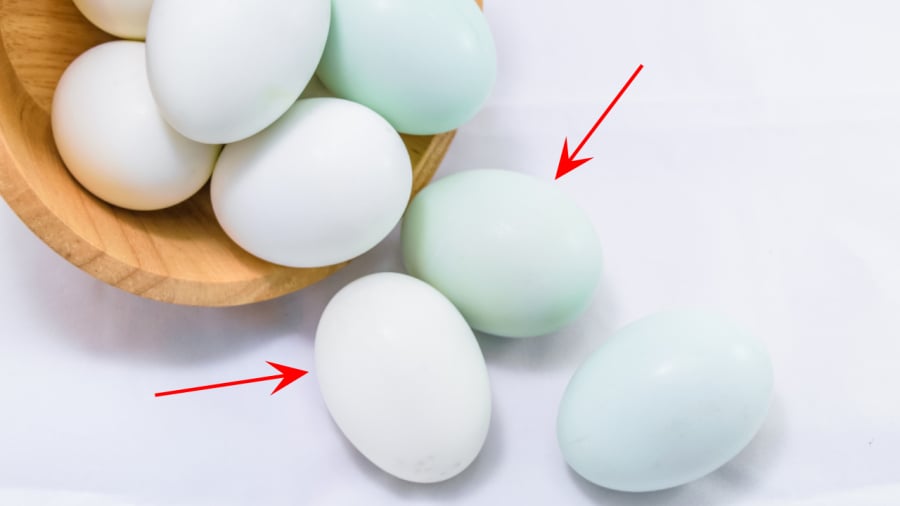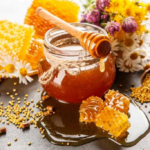Different types of poultry, such as chickens and ducks, can lay eggs with varying shell colors. For instance, chickens can lay eggs with red, brown, or white shells, while ducks may produce eggs with blue or white shells.
The main factors contributing to these color variations are the genetics of the bird, its environment, farming methods, and, to a lesser extent, its diet.
Do blue-shelled duck eggs have higher nutritional value and less fishy taste than white-shelled ones?
When it comes to duck eggs, there are some differences between those with white and blue shells:
– Shell Thickness
White-shelled duck eggs tend to have thinner shells compared to their blue-shelled counterparts. While this difference may not be visible to the naked eye, you can feel it by holding the eggs in your hand. White-shelled duck eggs usually feel lighter than blue-shelled ones.
Blue-shelled duck eggs have thicker and harder shells. Many people prefer blue-shelled duck eggs over white-shelled ones when it comes to transportation and storage due to their sturdier shells.

The primary difference between white and blue-shelled duck eggs lies in their shell thickness.
– Nutritional Content
Blue-shelled duck eggs contain 4.23% more protein than white-shelled duck eggs.
On the other hand, white-shelled duck eggs have slightly higher levels of selenium and lysine compared to blue-shelled eggs.
Blue-shelled eggs have a marginally higher content of acids and zinc compared to white-shelled eggs.
However, in terms of overall nutritional value, the difference between blue and white-shelled duck eggs is not significant. You can consume either type, ensuring that you purchase fresh eggs and store them properly. Blue-shelled eggs are preferable for long-term storage or transportation due to their thicker shells, but both types will have similar flavors.
Some people believe that eggs from poultry fed with rice, corn, or other natural feeds have a better taste and less fishy flavor than those fed with industrial feed, but this is mostly a matter of personal preference.
How to Store Duck Eggs
Blue-shelled duck eggs, with their thicker shells, can be stored at a temperature of 2-5°C (the temperature of a refrigerator’s cool compartment). Under these conditions, they can be stored for up to 40 days. In contrast, white-shelled duck eggs, with their thinner shells, require a higher storage temperature and have a shorter shelf life.
Regardless of the type, always select eggs with intact shells, free from dirt, cracks, or punctures. Store the eggs in the refrigerator’s cool compartment, ensuring that the larger end is facing upwards to prevent the yolk from sticking to the shell during prolonged storage.
The Super Seed: A Protein-Packed Punch, But A No-Go For Some
“King of Iron” is a mighty moniker for a seed that boasts superior nutritional value with protein levels surpassing even that of an egg. But this humble hero also packs a punch when it comes to cooling off during hot summer days. However, there are five groups of people who should consume this seed with caution.
Why Do Duck Eggs Have White and Blue Shells? Which One is Better?
When purchasing duck eggs, you’ll notice two distinct varieties: those with green shells and those with white shells. It’s only natural to wonder why this difference exists and which type is superior. So, which one should you opt for? Are green-shelled duck eggs better, or do their white-shelled counterparts hold more nutritional value?





































